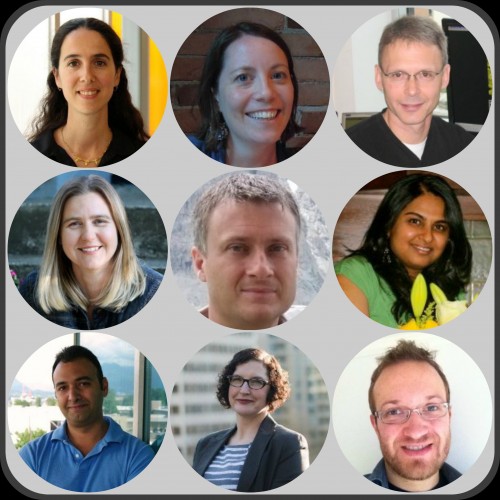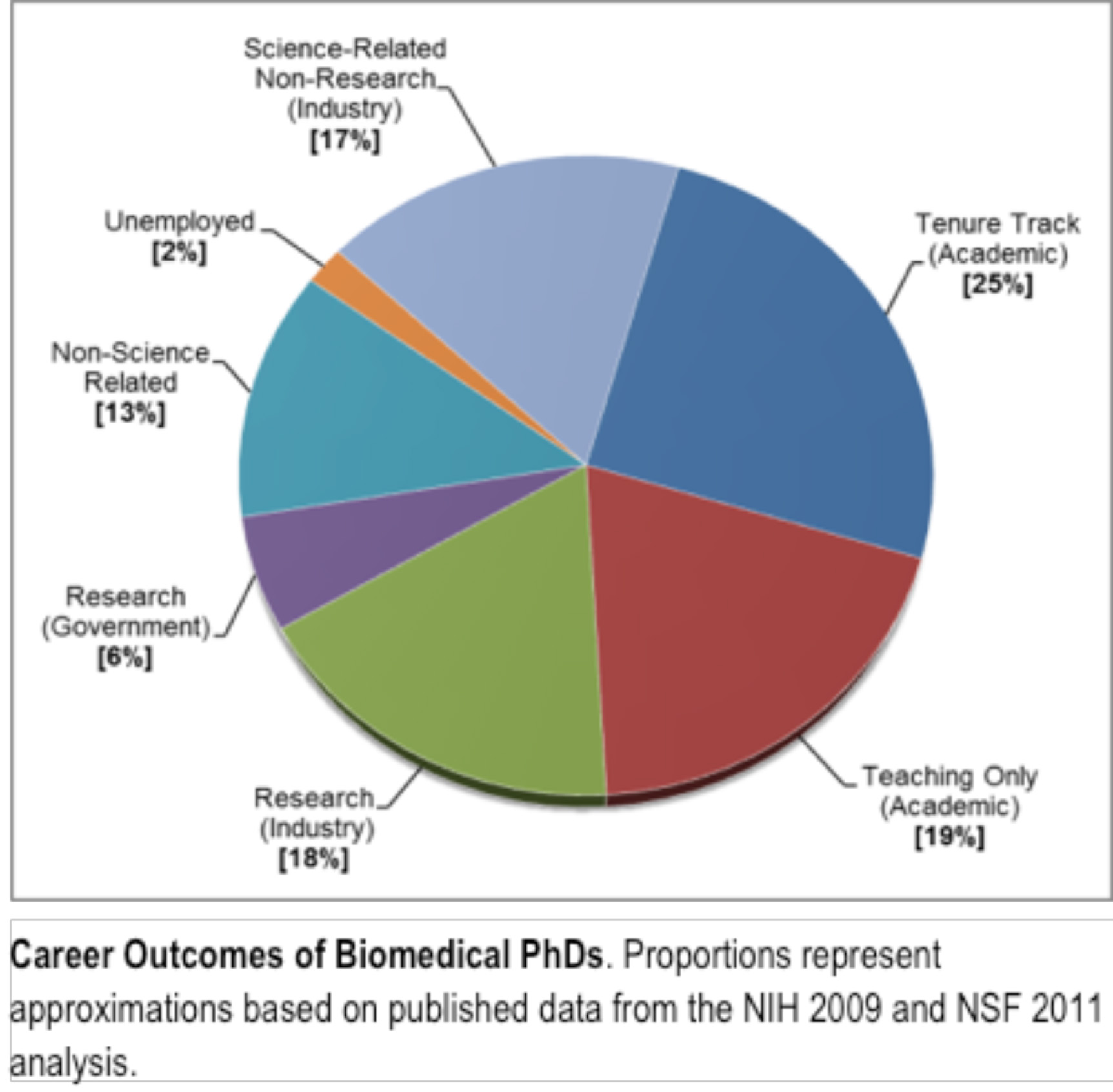 By Brianne Burkinshaw, PhD Candidate at Strynadka Lab
By Brianne Burkinshaw, PhD Candidate at Strynadka Lab
Many students choose to enter graduate school because they enjoy research and are passionate about science, but few have a concrete idea of the type of career they would like following graduation. Traditionally, graduate school has been used for training future generations of tenure-track university professors. While this is still the aim of some students, it has become increasingly clear that a large percentage of graduates go on to work in a diverse range of careers. In Canada, doctorates have an unemployment rate of 4.1%, well below the national unemployment rate of 6.2% (1). The question is: where do life science graduates in Canada find employment and how can we set ourselves up for success early in our degree?
At the recent Career Night hosted by the CBR on June 16th, 2015, a group of nineteen mentors, from diverse sectors of education, government and industry, shared their experiences. Each mentor explained how they came to work in their current position, what they enjoy about their job, and also offered general career advice for current trainees. Re-occurring advice for those unsure of which career path to pursue was to take advantage of any interesting opportunities that may arise. For example, Dr. Carol Friedrich-Fong recalled how she tried teaching a course at the British Columbia Institute of Technology (BCIT), despite being unsure if she would like teaching. She enjoyed it so much that she eventually went on to become a full-time Instructor, and then the Program Head of Biotechnology at BCIT. Another valuable piece of advice was to try and gain a diverse set of skills during your university training, as it may provide an advantage having a unique perspective on a field of study. Dr. Elodie Portales-Casamar completed a PhD in cell biology, and then studied bioinformatics during her post-doctoral fellowship. She now works as a clinical informatics specialist, positioned at the interface between bioinformatics and health research. A piece of advice from Dr. Geraldine Walsh was to make peers and mentors aware of your interest in a particular area. As a post-doctoral fellow, Geraldine was passionate about writing, and through sharing her enthusiasm for writing and involving herself in particular projects, she eventually landed a position as a scientific writer for Canadian Blood Services (CBS).

CBR Career Night mentors. Left to right: Elodie Portalez-Casamar, Geraldine Walsh, Ed Pryzdial, Carol Friedrich-Fong, Andre Marziali, Sweta Rajan, Salim Danji, Marjorie Robbins, Tim Leaver
A common theme in mentor experiences was the non-linearity of their career progression, with many twists and turns, where they found themselves learning new skills during each stage of their career. Some mentors, who hold UBC faculty positions, were also involved in industry and entrepreneurship at different stages of their careers, such as Dr. Andre Marziali – the founder of Boreal Genomics. Other mentors, such as Jeffrey Helm, hold multiple positions. After earning two Master’s degrees, one in neuroscience and another in science journalism, Jeffrey is now a freelance scientific writer and a research manager for the Immunity and Infection Research Centre. While it may not always be possible or practical to plan out a career years in advance, these mentors found success in recognizing and seizing the opportunities as they presented themselves, while constantly building new skills and seeking out challenges.
As Dr. Ed Pryzdial eloquently summarized: “the currency of a PhD is the ability to think critically, and solve problems”. A recent graduate may feel their skills are limited to a small area of research, but in reality, the skills obtained in graduate school can provide students with the versatility needed to move between fields. Dr. Brett McLeod completed his doctorate in microbiology but now works for the Canada Revenue Agency, reviewing business research programs, from chemical processes to brewing methods, assessing if they qualify for tax incentives. He felt that his involvement in journal clubs and reading on a range of subjects during his studies gave him the science literacy and research skills he needed for this job.
Finding unique opportunities and skill sets all rely on the importance of getting to know people around you. Organized events like the CBR Career Night was unanimously seen by the mentors as a great resource. However, requesting information interviews, and even daily interactions are all great strategies to learn more about the kind of opportunities that abound!
(1) Statistics Canada, 2011 National Household Survey



